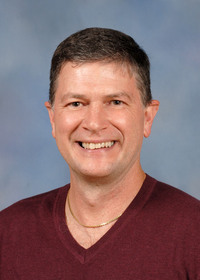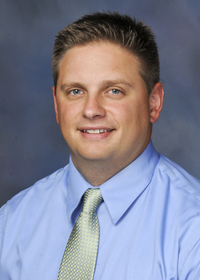Information Possibly Outdated
The information presented on this page was originally released on April 23, 2001. It may not be outdated, but please search our site for more current information. If you plan to quote or reference this information in a publication, please check with the Extension specialist or author before proceeding.
Conservation training enriches the classroom
MISSISSIPPI STATE -- Many teachers across the state are using natural resource conservation as a means to teach their students skills in topics such as math and science.
This summer and for the last 37 years, the Mississippi Forestry Association has gathered cooperators to offer a week-long Teachers Conservation Workshop. This residential class is giving educators a way to emphasize the importance of conservation of natural resources while teaching the basic skills required in the state curriculum.
"Sixty percent of our land area in Mississippi is in forests, so we attempt to familiarize educators with natural resource management, especially forest management because it dominates the landscape of the state," said Tom Monaghan, forestry department leader with Mississippi State University's Extension Service.
About 30 people have attended each of the sessions offered annually. Participants are mostly kindergarten through 12th grade teachers, but also include community college instructors, school administrators and Extension agents, especially those with 4-H responsibilities.
"This course is appropriate for any educator. Anyone who teaches youth can incorporate certain methods and techniques that will familiarize students with natural resource management," Monaghan said.
During the workshop, teachers learn numerous aspects of forest management and conservation practices, as well as see the forestry industry from seedling through processed products. Classrooms are both indoors and in forests as participants learn by demonstration and practical exercises how current conservation practices can be integrated into classroom work and student projects.
"One of our goals is to show teachers how the economic well-being of our state can be improved if we properly manage our natural resources," Monaghan said. "Teachers are our best opportunity to reach students, and we very much need to graduate students who understand the importance of natural resources and how they're managed in the state because they're going to be our future decision-makers."
The workshop offers continuing education units to teachers, and graduate and undergraduate course credit through MSU, the University of Southern Mississippi and the University of Mississippi. Participants also are certified to use teaching materials from Project Learning Tree, an interdisciplinary environmental education program that meets the state education curriculum requirements.
Sandra Murphy is a fourth grade teacher at Caledonia Elementary in Lowndes County and a Teachers Conservation Workshop participant. She went to her first workshop five years ago, and now helps provide these programs.
"The basic goal is to educate teachers on the Mississippi timber industry, the second largest industry in the state besides poultry," Murphy said. "People not in forestry see a clear-cut land and may think the land has been destroyed when actually more trees have been planted and conservation practices are being used."
After attending a workshop, Murphy came back to her school and applied for and received a state forestry commission grant to build a nature trail at Caledonia Elementary. She also has a forestry club and has a forester speak to her class once a month about forestry topics.
Two Teachers Conservation Workshops are scheduled this year, one June 3 through 8 at Mississippi Gulf Coast Community College in Perkinston and one June 17 to 22 at Northeast Community College in Booneville.
Registration is $50 and course credit is extra, payable to the university granting the credit. Monaghan said scholarships from local County Forestry Associations are sometimes available to defray registration and even tuition costs. Lodging and meals are provided on-site.
For more information, contact: Dr. Tom Monaghan, (662) 325-3905



